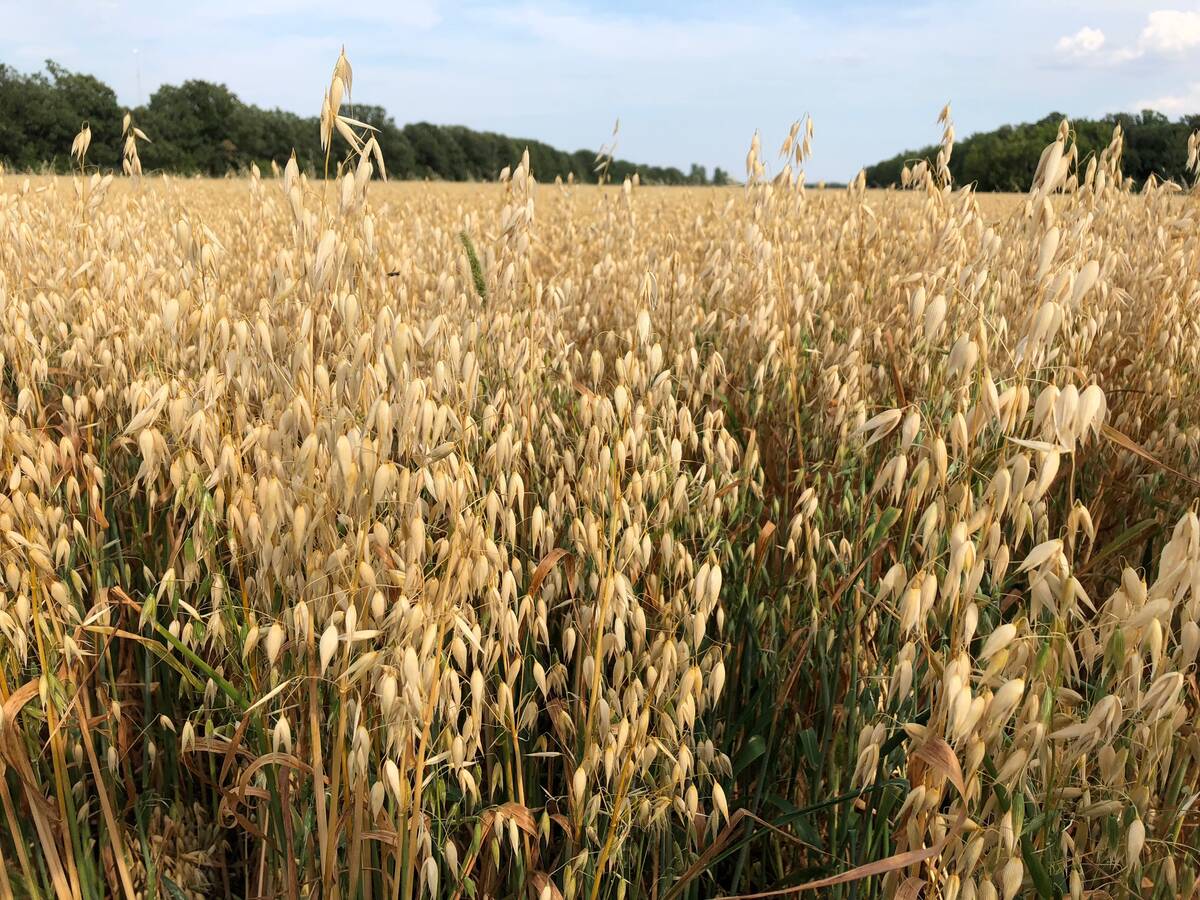CNS Canada — While this year’s oats crop in Canada may not be above-average, prices are staying relatively strong in comparison to other crops, from where one southern Manitoba merchant sits.
“They’ve held in very strong relative to corn and wheat,” said Ryan McKnight, a grain merchant for Linear Grain at Carman, Man. “Out of the whole grain complex, oats have not seen the kind of drops that we’ve seen in other things; I think because of that it will hurt the feed demand in the oat market in the long term.”
Read Also

Big oat crop in 2025/26 pointing to less acres next year
Oat acres in Canada are likely to recede this spring with cash prices to remain low, said Scott Shiels, grain procurement manager for Grain Millers Canada in Yorkton, Sask.
Not many grain companies are offering for oats recently, due to ongoing logistics and transportation issues, he added.
“Railways are more or less getting caught up,” said McKnight. “Oats are going, for the most part, in the U.S. and the railcars don’t come back very quickly when they’re going to the delivering railway carriers, so my guess is if railways are going to be most likely less interested in those types of destinations.
“Assuming that they have high demand for cars, they’re going to be looking to haul to places that have fast turnaround times, which will be mainly the ports.”
Milling demand for oats remains steady as usual, he said.
“Feed oat demand is sort of the kicker in the oat usage world. If oats are too high-priced, relative to other replacements for oats, then they don’t use them; they kick them out of their usage and that leaves the demand lower,” said McKnight. “There’s demand that comes from the feed industry and that (demand lowers) when oats are high-priced relative to other commodities.”
This year’s oat crop is expected to be average-sized, but there are some worries over the quality.
“We’ve seen some boarded kernels, heat blasting (blight) they call it, in Manitoba and there’s a possibility the oats could be a lighter test weight,” said McKnight. “I haven’t confirmed that because we haven’t seen any crop samples yet. But based on the weather we’ve had, the oat quality in Manitoba is possibly questionable.”
McKnight said there aren’t a lot of oats acres in Manitoba’s southwest, which received an excessive amount of rain in early June — but cropland around Yorkton, Sask. has also seen heavy rainfall, which could impact crop yields and quality.
“Farmers should probably consider selling some oats at these levels because if there’s any sort of correction relative to other commodities it’s going to make for obviously lower oat prices,” he said.
“So if people can make money at today’s prices they should probably sell some to buyers willing to take them.”
— Marney Blunt writes for Commodity News Service Canada, a Winnipeg company specializing in grain and commodity market reporting.















